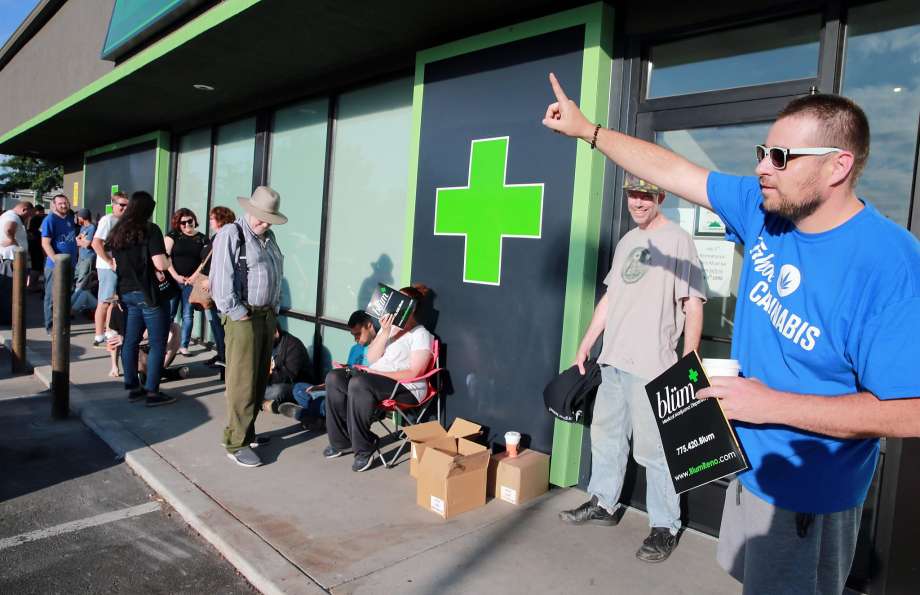Since Nevada’s recreational marijuana program launched in July, sales have dropped 20 to 30 percent as dispensaries struggle to meet the swell in demand, according to a report last week from the Nevada Department of Taxation.
A shortage of businesses able to deliver product to dispensaries has stunted the market, leaving dispensaries with a product selection that’s been reduced by more than half, the report said.
Dispensaries insisted that they needed more product faster, and they needed at least nine to 11 deliveries per week with between 12 hours and five days notice. Currently, they’re waiting closer to a week to two weeks.
“These (retail marijuana) businesses are struggling without a robust distribution system. Cultivators and producers have product sitting for days waiting to be delivered to stores while the quality of the product degrades. Retailers do not have the products their customers desire, products that are legal and should be available to them,” said Deonne Contine, director of the Nevada Department of Taxation, in the report.
The report is based on surveys filled out by more than five dozen marijuana establishments and more than a dozen alcohol distributors, an effort that is the result of an emergency regulation passed last month. It’s hoped to put to rest the issue of a distributors’ shortage.
The state currently is required to rely solely on alcohol distributors for delivery of recreational marijuana to dispensaries, a mandate that could either be killed or continued on Thursday in a Carson City District Court hearing. Carson City District Court Judge James Russell may determine whether the state’s recent report is evidence enough that the state is in dire straits, or he may determine that the alcohol distributors still have exclusive rights to distribution.
Alcohol distributors were given those exclusive rights in the November ballot measure legalizing recreational marijuana, but the state last week determined in its report that there are not enough alcohol distributors qualified for the job at this time.
After passing an emergency regulation last month and releasing the report last week, the state planned to open the application process up to the more than 80 marijuana establishments that have expressed interest in distribution, but Russell asserted that the state had not given distributors ample opportunity to respond to the findings, according to an order filed soon after the report’s release.
That means the entire industry will rest on the shoulders of just one distributor for a good while longer.
Link – RGJ





































